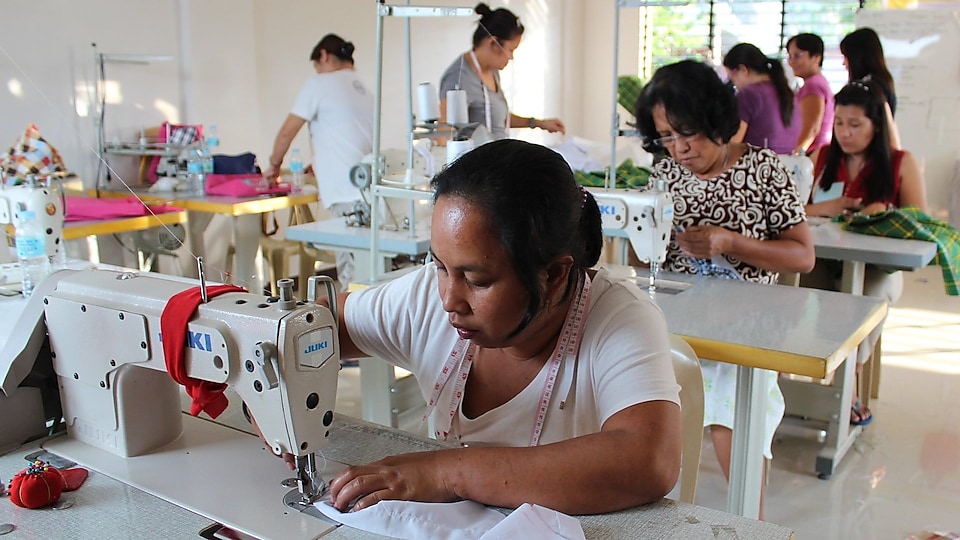
Farmers gain from NextGen rice varieties
If there is one industry in the world today that is highly exposed to climate change, many would agree it is agriculture. The reason is that farming activities depend mostly on climatic conditions. Climate change is already affecting agriculture because of unpredictability of weather patterns.

In the country, our crop production sector, particularly rice production, suffers most from the effects of varying climatic conditions. Prolonged dry spells and extreme flooding contributed to the drop in rice production in recent years. To avert these effects, the government poured its efforts in developing rice varieties that should not only make rice production sustainable but also adaptive to environment stresses; one such effort is the NextGen project.
In July 2015, Pilipinas Shell Foundation, Inc. (PSFI) signed a Memorandum of Agreement with the International Rice Research Institute (IRRI) for the NextGen project partnership. An initiative under the Food Staples Sufficiency Program of the Department of Agriculture, the project is aimed at accelerating the development and adoption of next-generation rice varieties for major ecosystems in the Philippines. For the trying-out phase, IRRI, through PSFI, distributed more than 20 climate-smart rice varieties for planting by 10 farmers each in Bombon, Camarines Sur and Pililla, Rizal. These rice varieties developed were planted in submergence, drought, and saline-prone, rainfed and irrigated ecosystems in 8.5 hectares of land during the last quarter of 2015.

After their harvest from October to December 2015, 11 out of the 20 farmers said they will use the variety again. The others said they will not use the variety but would like to try other varieties suited to their farm. As of this writing, seeds were already requested for more than 28 new farmer co-operators from Bombon and Pililla, who expressed their desire to participate in the program.
Menandro Hayag, fondly called Mang Nanding, of Bombon, has been planting rice for 32 years and claims that the harvest he got from the submergence variety he planted in an initial 1,000 sq. m. paddy area increased by 3 cavans (i.e., from 15 to 18 cavans) compared to the usual variety he uses. He said that apart from the increase in the yield, palay seed cost is lowered by half and the cost of labour in transplanting is also lowered by 15% due to the higher planting distance and lower number of hills planted on. He also cited the good eating quality of the variety he used.
The same is true for Ruelo Salandanan, also of Bombon, who planted another submergence-prone variety. He harvested 38 cavans from the 2,000 sq. m. he initially allotted, 11% higher than his usual 34 cavans. Because of the experience, he utilized the new submergence variety for his 4-hectare land and mentioned the big savings on labour cost. Instead of 20 persons for transplanting per hectare, he only utilized 16.
From Pililla, Barangay Councilor Arthur Paje and Oscar Ledesma both planted in their half-hectare area. Kagawad Paje said he got 60 cavans from his irrigated paddy while Mang Oscar got 47, both of which are more than 50% higher than their usual harvest. Both also distributed and sold some binhi from their harvest to nearby farmers including those in Siniloan, Laguna. All claimed good results from their harvest as well. Mang Oscar mentioned, “If not for the Next Gen project, farmers like me could not get the varieties that benefited farmers in the area first-hand. We are willing to participate in the future endeavours of the project.”
John Arthur Carbonell, Officer-in-Charge of the Municipal Agriculture Office of Pililla, said he is very grateful to PSFI and IRRI for bringing the project to Pililla. Although not all of the 10 farmers who tried the recommended varieties got the same results, his office fully supports the project, and in fact, is recommending it to other barangays, knowing that not all are given the opportunity to receive newly developed quality seeds for their farm.
By Maria Pamela Castro, Isagani Betchayda, and Bernard Camano
Article published on PSFI news magazine October 2016 issue
More in Livelihood and Agriculture
Support to farmer-entrepreneurs in Cam Sur
Upgrading the capacities of existing farmer groups to respond to the challenges of not only sustainable farming but also profitable farming.
Empowering women through livelihood and entrepreneurship
Shell Pilipinas Corporation continues to solidify its social performance as it rolled-out sets of training on sewing for women of Brgys. Tabangao, Ambulong, and San Isidro, Batangas City.

